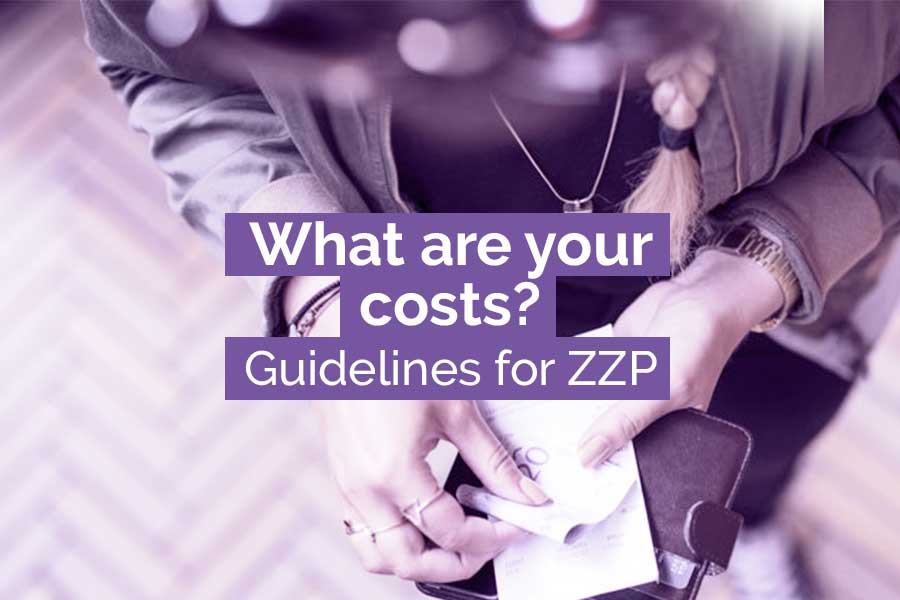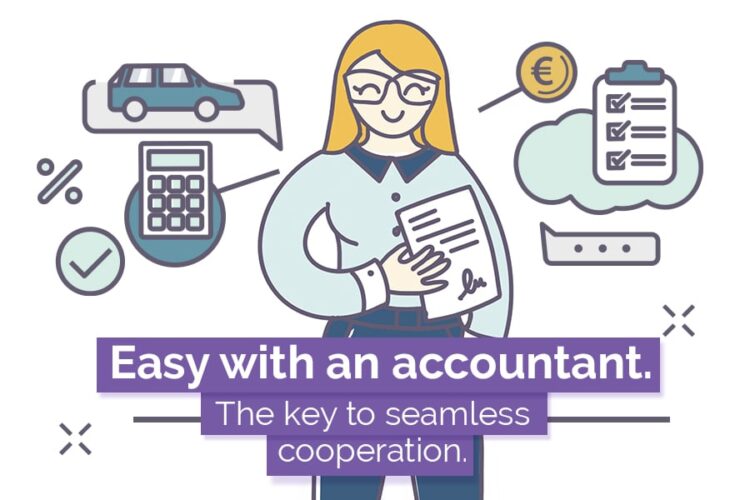How to create and register costs whilst avoiding a hassle?

The more costs you generate as a business owner, the less tax you will pay. How to do it efficiently without bending the rules?
The basis of your taxable income depends on how immaculate you register your business costs. The rules are simple – the higher the costs, the lower the tax.
Company costs are all the necessary expenses that you incur to maintain your business. Your first cost will be the official fee for company registration with KVK, which is approximately €50. Other typical start-up costs for new entrepreneurs are maintaining a company account in the bank, a telephone with a subscription, or a logo and business card design. What other company costs do you have?
Tip
Have your business and your personal expenses in separate bank accounts. A company account gives your company a professional image and helps in transparent administration.
Costs according to Belastingdienst
The Dutch Tax Office defines them as follows: “Company costs are costs that are reasonably necessary to run your business and are directly related to your type of business.” The costs that you incur while running a business are deductible from your income – you will deduct them in the annual tax return. Because of this, your income will be lower, so you will pay less income tax.
How to prepare for a tax inspection?
You need to be able to prove all the expenses you incur for the business, so make sure you have a transparent administration.
- Keep a digital version of receipts in case they become illegible over time (scan or photo)
- Store your accounting documents according to statutory guidelines (depending on the industry, from 7 to 10 years)
According to the Belastingdienst, you as an entrepreneur are free to determine what costs you incur for the company. This will be verified only in the case of a tax inspection (Do you have to be afraid of a tax inspection? Read it here) You should then be able to justify all business expenses and present deductible items. The tax inspector wants to have a quick overview of your invoices and receipts, so transparent administration with all related receipts and invoices is a must.
Tip
Collect receipts and invoices in a digital version! Thanks to this, you will avoid the risk of losing the document or the fading of the receipt.
From now on, you can keep records of your company’s costs in eFaktura!
Take a photo of the receipt or transfer a document to the system, e.g. pdf or jpg.
You can assign a cost to a given project to better calculate the price of your services!
Test for free!
Available from September in the PRO package.
“Can I take this on the company? ” The controversy surrounding costs.
There is a fine line between corporate and personal spending. Sometimes it may seem that a purchase is necessary for the company, and only upon inspection it turns out that the tax inspector has a different opinion on this matter…
What can and can’t be at your expense?
- Workwear does not include formal clothing such as a suit, but clothing that you only use in your work environment. It can be a work coveralls or clothing with a company logo.
- A new issue of a magazine is deductible if you intend to use it for work or if the magazine is for your clients, for example in a waiting room.
- Do you have one telephone for business and private purposes? You can only deduct a fraction of your costs. It could be, for example, 60%, but remember that you need to be able to justify this proportion.
- The purchase of an office chair for your workroom is not deductible, unless you have a separate room for the office, with its own entrance and sanitary facilities.
- The coffee you drink while working in a café is a private expense. If you have a business lunch with a client, part of this cost will be deductible.
“It’s on the company!”
The most common company costs are:
- Laptop
- Computer software
- Mobile phone
- Administration program
- Car
- Office
- Accountant
- Investments (machines, tools)
- Workwear
- Advertising of the company
- Company insurance
- Courses or training
- Website
- Travel costs (read about mileage)
Investments and depreciation, i.e. the limit of € 450 net
Remember that you can deduct most corporate expenses, but there are separate rules for purchasing more expensive fixed assets (laptop, machine, car) and intangible assets (permits, courses and training). The tax authorities treat the purchase of fixed assets from 450 euros as an investment in the company, therefore the entire cost cannot be deducted in one time, in the year of purchase. This amount will be distributed (depreciated) over the time you intend to use the item, e.g. for a car or computer, the depreciation is 5 years.
It pays off for you!
The subject of cost is sometimes underestimated by entrepreneurs – some knowledge in this area seems to be obvious. For costs, as in any business administration topic, it simply pays to be honest. Meticulous cost calculation gives your company measurable benefits: you pay lower taxes and you have full control over expenses, and thus you can optimize the prices of your services!


